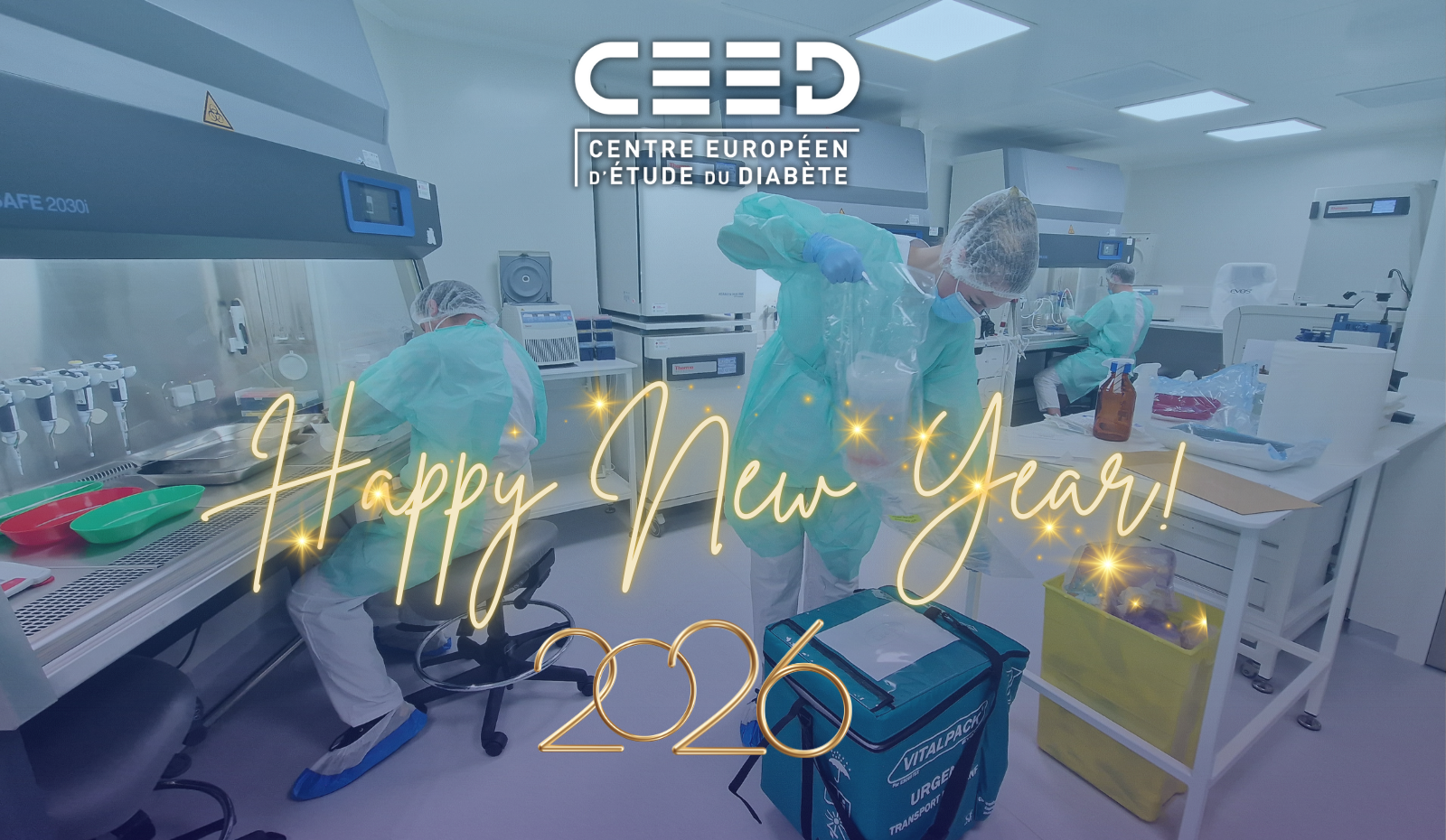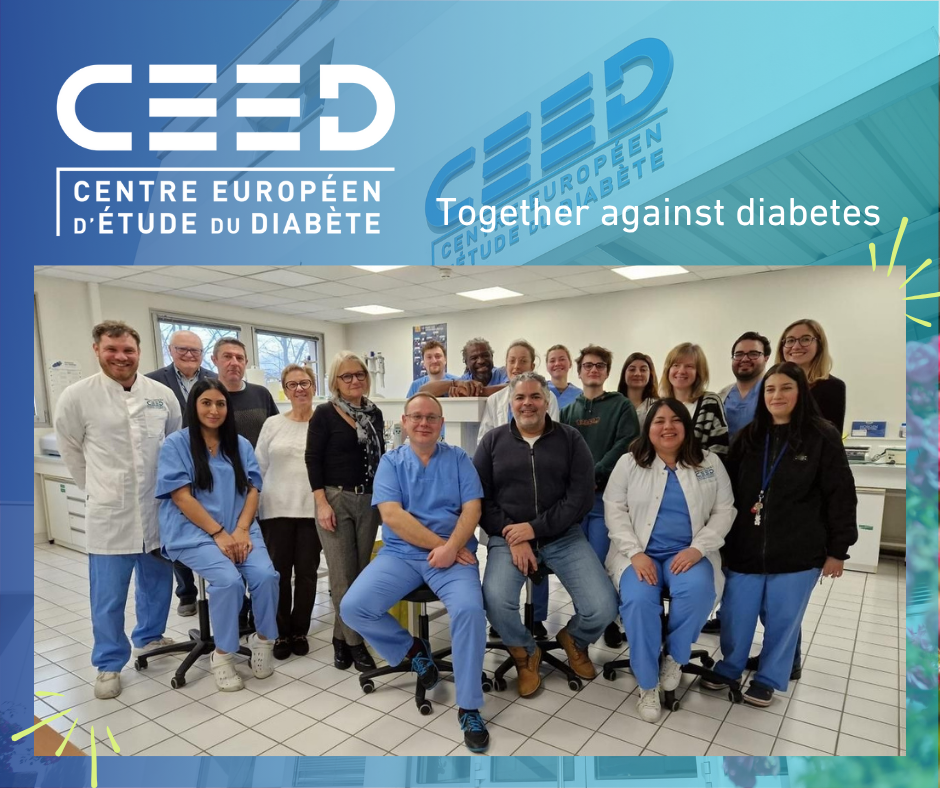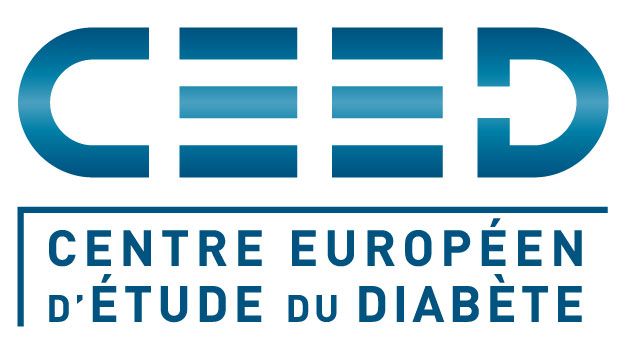New postdoc on the benefits of resistance training upon beta-cells and the molecules involved in this process
September 1 2025
Welcome Gabriela Alves Bronczek!
Gabriela, our new postdoc, just arrived from the Obesity and Comorbidities Research Center of
Universidade Estadual de Campinas, Brazil.
She will study the benefits of resistance training upon beta-cells and the molecules involved in this process.
She joins our team for one year thanks to a Post-Doctoral fellowship granted by the
Sao Paulo Research Foundation.
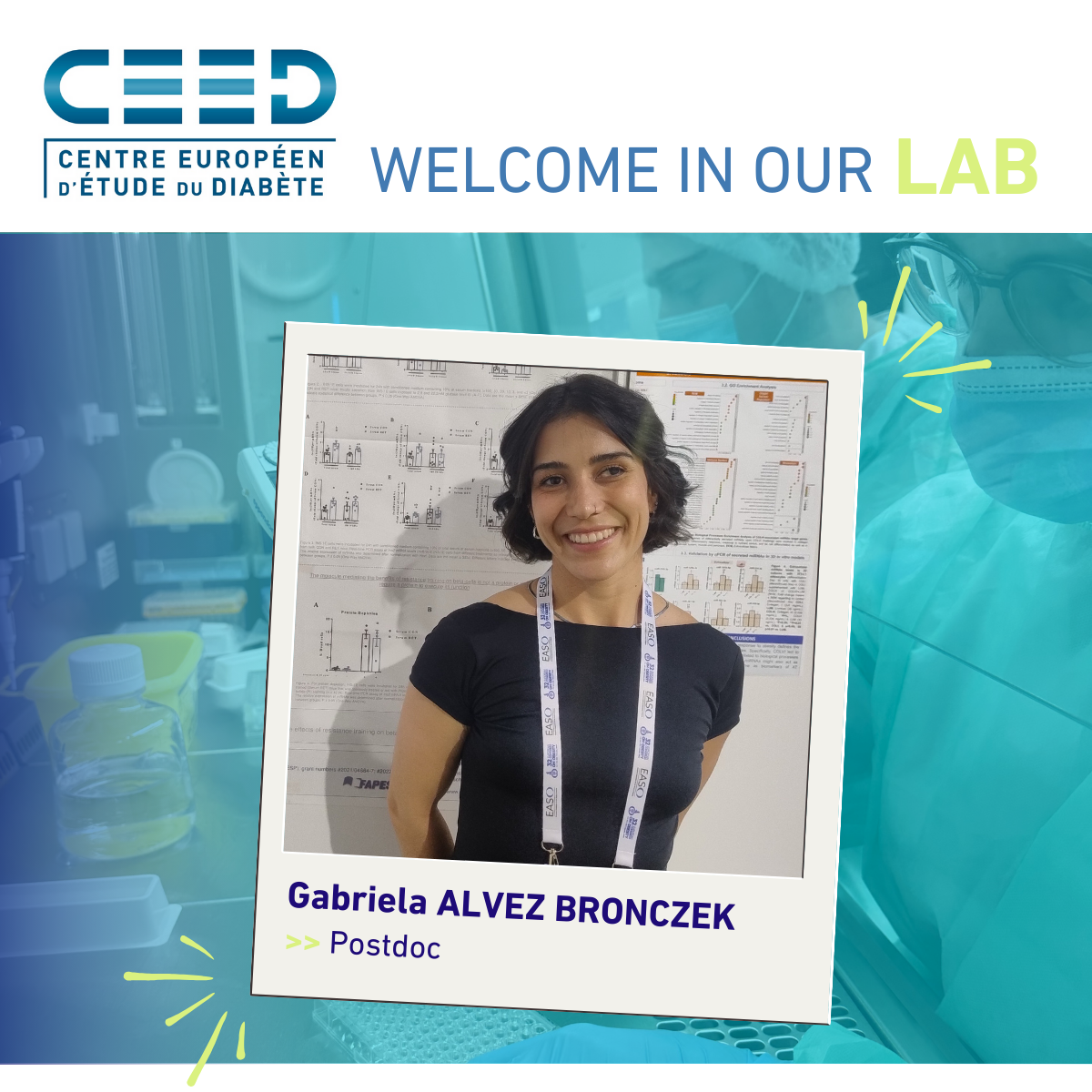
Discover the research project:
Identification of small molecules and exosomes in the serum of resistance-trained mice.
Abstract : Exercise induces the release of various molecules, called exerkines, into the bloodstream that play important roles in different tissues, especially the endocrine pancreas. Moreover, extracellular vesicles (EVs), including microvesicles (MVs) and exosomes or exosome-like vesicles (ELVs), are secreted concomitantly with exerkines. These EVs act as cargo carriers or ‘mediators’ of intercellular communication. Thus, there has been a growing interest in the role of EVs on the organ crosstalk in response to exercise. In previous studies, we observed that INS-1E cells (rat pancreatic beta cells) treated with the serum from resistance-trained mice secrete more insulin in response to glucose. In addition, these cells are more resistant to injury and apoptosis induced by endoplasmic reticulum (ER) stress and pro-inflammatory cytokines. Thus, we believe that these alterations are mediated by exercise-induced molecules released in the bloodstream. Next, we analyzed the serum from resistance-trained mice to identify the mediator of such effects. We were able to determine that this mediator is smaller than 3 kDa and is not a protein. Given the rising interest on exosomes, their small size and their content, investigate the involvement of this type of EV on the effects of resistance exercise on beta cells may be an interesting approach to unravel the mediator we have been looking for. In this context, this project aims to identify small molecules such as metabolites, and exosome content that may benefit beta cell function. For this, we will perform a metabolomic analysis by mass spectrometry, as well as exosome isolation on the serum from resistance-trained mice. Thus, we will be able to select molecules and isolate exosomes to test their effects in vitro, by treating human pancreatic islets and sorted beta cells. We believe that the characterization of such molecules could be of great therapeutic interest, especially for T1D individuals, contributing to maintaining their glycemic control, as well as their remaining beta cells.
- Advisor: Antonio Carlos Boschiero, PhD - Obesity and Comorbidities Research Center (OCRC)/IB/Unicamp/Brazil.
- RIA Supervisor: Karim Bouzakri, PhD - Centre européen d'étude du Diabète (CeeD)/UR DIATECH 7294-University of Strasbourg/France.
